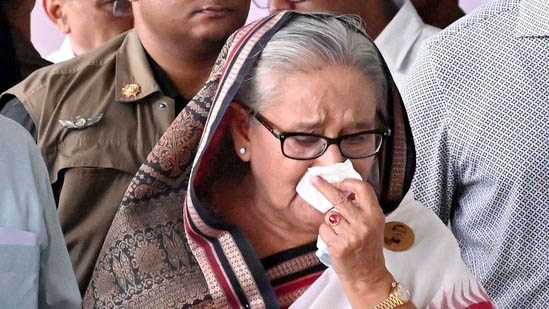Bangladesh Bans Awami League: Rising Concerns Over Democracy and Political Fairness

Political Crisis in Bangladesh: Awami League Banned Ahead of 2026 Elections
In a highly controversial move, Bangladesh’s interim government, led by Nobel Laureate Muhammad Yunus, has banned all activities of the Awami League under the Anti-Terrorism Act, citing national security concerns. This decision has barred the country’s oldest and largest political party from participating in the upcoming April 2026 general elections.
The Election Commission of Bangladesh followed by suspending the Awami League’s registration — a move critics say strikes at the core of democratic values and raises serious questions about the legitimacy of the electoral process.
Critics Call the Ban Unjust and Politically Motivated
Legal experts and human rights organizations argue that collective punishment of a political party for its past leadership undermines both due process and political fairness.
“Banning a party is not justice, it’s a shortcut to authoritarianism,” said Advocate Tariqul Islam of the Supreme Court Bar Association.
Human Rights Watch and several international observers have urged the government to reverse the ban, highlighting that inclusive participation is essential for free and fair elections.
Muhammad Yunus Faces Backlash Over Anti-Democratic Moves
Although Muhammad Yunus was once hailed for his work in poverty reduction and microfinance, his role as interim head of state is now under increasing scrutiny. Many in Bangladesh view his recent decisions — particularly the banning of political rivals — as contradictory to his promises of transparent and participatory governance.
“We rejected dictatorship, not democracy,” said Sultana Parvin, a Dhaka resident. “You can’t build a free Bangladesh by silencing half the country.”
International Response: A Call for Electoral Transparency
Global reactions have been swift. The United Nations, EU diplomats, and regional analysts have all warned that the removal of a key political actor from elections risks delegitimizing the democratic process.
“This election will not be credible if major opposition voices are silenced,” reads a joint statement by international election observers.
Why This Matters for Bangladesh’s Future
The banning of the Awami League is more than a political maneuver — it’s a litmus test for the future of democracy in Bangladesh. If political power can be consolidated by suppressing opposition rather than winning public trust, the country may be heading down a path it once fought hard to avoid.